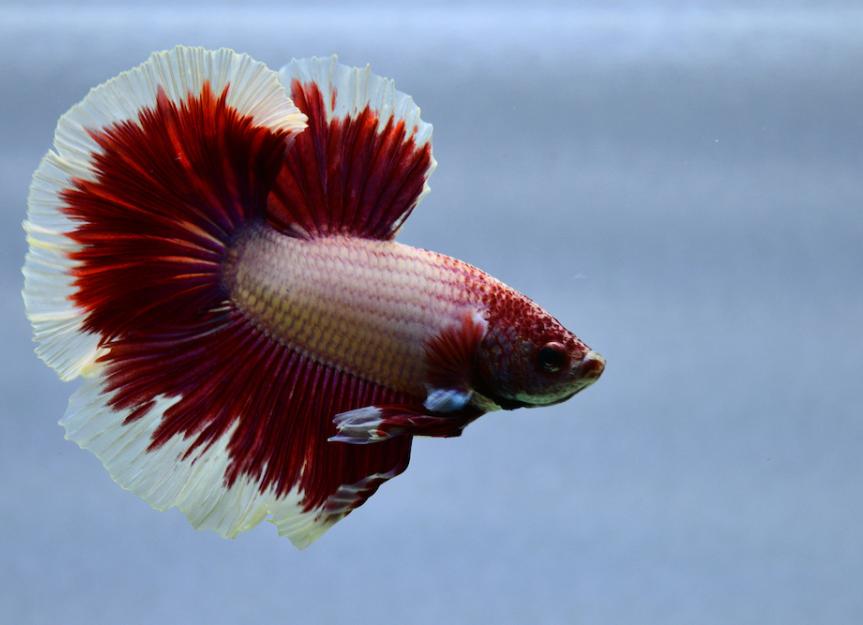Betta Fish Diet Regimen: What to Feed Your Betta for Optimal Wellness
Betta Fish Diet Regimen: What to Feed Your Betta for Optimal Wellness
Blog Article
The Ultimate Overview to Betta Fish Treatment: Necessary Tips for Preserving a Healthy and Thriving Aquarium Setting
Effective Betta fish treatment necessitates an extensive understanding of their distinct environmental and physiological demands. Establishing an ideal fish tank starts with picking the right storage tank size and ensuring ideal water conditions, which are essential for the wellness and health of your Betta.
Selecting the Right Container
Choosing the proper storage tank for your Betta fish is essential to guaranteeing its health and wellness and health. Bettas thrive in environments that imitate their all-natural habitats, which usually are composed of tranquility, warm waters. A storage tank dimension of at least five gallons is suggested to offer adequate swimming space, as smaller sized tanks can bring about tension and health and wellness concerns for these vivid fish.
When choosing a tank, think about the tank's shape and purification system. In addition, a trusted purification system is necessary to keep water top quality and lessen the frequency of water adjustments.
Temperature level regulation is one more vital factor; Bettas prefer water temperature levels between 76 ° F and 82 ° F. Purchasing an excellent heating system will make certain that the water stays within this range, promoting a healthy and active way of living for your Betta. Supplying proper container designs and hiding places will certainly assist minimize stress and anxiety and motivate all-natural behaviors, further boosting your Betta's health.
Preserving Water Quality
Keeping optimal water quality is necessary for the health and wellness and longevity of Betta fish. This calls for routine monitoring of different specifications, consisting of temperature, pH, ammonia, nitrite, and nitrate degrees.
The pH level must preferably fall in between 6.5 and 7.5. Routine testing utilizing a reputable water testing kit can aid ensure these criteria stay within the appropriate arrays. Ammonia and nitrite degrees should always be at 0 ppm, as also reduced concentrations can be toxic to Betta fish. Nitrate levels should be maintained under 20 ppm to stop long-lasting wellness issues.
Routine water changes are vital to maintaining water quality. In addition, incorporating a durable filtration system can assist in maintaining water clearness and top quality, supplying a much healthier environment for your Betta fish.
Ideal Feeding Practices
Supplying a balanced diet regimen is crucial for the health and wellness and dynamic pigmentation of Betta fish, as their dietary needs play a considerable role in their total health. Betta fish are meat-eating by nature, requiring a diet plan high in protein. A combination of top quality pellets, icy or live foods such as bloodworms, salt water shrimp, and daphnia can offer the crucial nutrients they need.
Feed your Betta fish 2 to 3 times a day, offering just what they can eat within two to 3 minutes to stop overfeeding and keep water quality. Overfeeding can bring about excessive weight and health issues, consisting of swim bladder illness. It is necessary to check their nutritional intake and readjust section dimensions appropriately.
Along with protein, a balanced diet ought to consist of nutrients to promote optimum health. Take into consideration supplementing their diet with premium flakes or pellets especially formulated for Betta fish, as these often include essential additives.

Developing an Ideal Environment

Water quality is vital; preserve a temperature level between 76 ° F and 82 ° F, and ensure the pH degree ranges from 6 - betta fish.5 to 7.5. Regular water changes of 25-50% per week will certainly assist maintain toxic substances at bay and make certain a steady setting
Incorporating plants and concealing areas is crucial, as Betta fish are naturally territorial helpful site and enjoy having locations to explore and pull back. Live or silk plants, along with caverns and ornaments, can develop a revitalizing setting.

Routine Health And Wellness Checkups
Carrying published here out regular health and wellness check-ups is important for guaranteeing the well-being of Betta fish, as very early discovery of possible issues can prevent severe illness. These check-ups need to include an extensive exam of the fish's physical problem, behavior, and environmental elements.
Begin by observing the Betta fish for any type of signs of distress, such as sleepiness, loss of hunger, or unusual swimming patterns. In addition, evaluate the fins and body for indicators of staining, lesions, or fin rot, which can show infections or bloodsuckers. On a regular basis keeping track of the water quality in the aquarium is similarly important; parameters such as pH, ammonia, nitrite, and nitrate levels should be preserved within ideal arrays to stop stress and illness.
In addition, take into consideration keeping a log of health observations and water top quality examinations. Timely treatment can make a significant difference in the healing of your Betta fish, making sure a lengthy and healthy and balanced life in a well-kept aquarium setting.
Conclusion
To conclude, successful Betta fish treatment rests on developing and preserving an ideal aquarium atmosphere. Trick aspects include selecting an appropriately sized tank, ensuring constant water top quality, adhering to excellent feeding practices, and designing an environment that lessens Our site stress. Normal health appointments are crucial for early detection of prospective problems. By complying with these standards, aquarists can promote the health and vibrancy of Betta fish, inevitably resulting in a flourishing water community.
Report this page